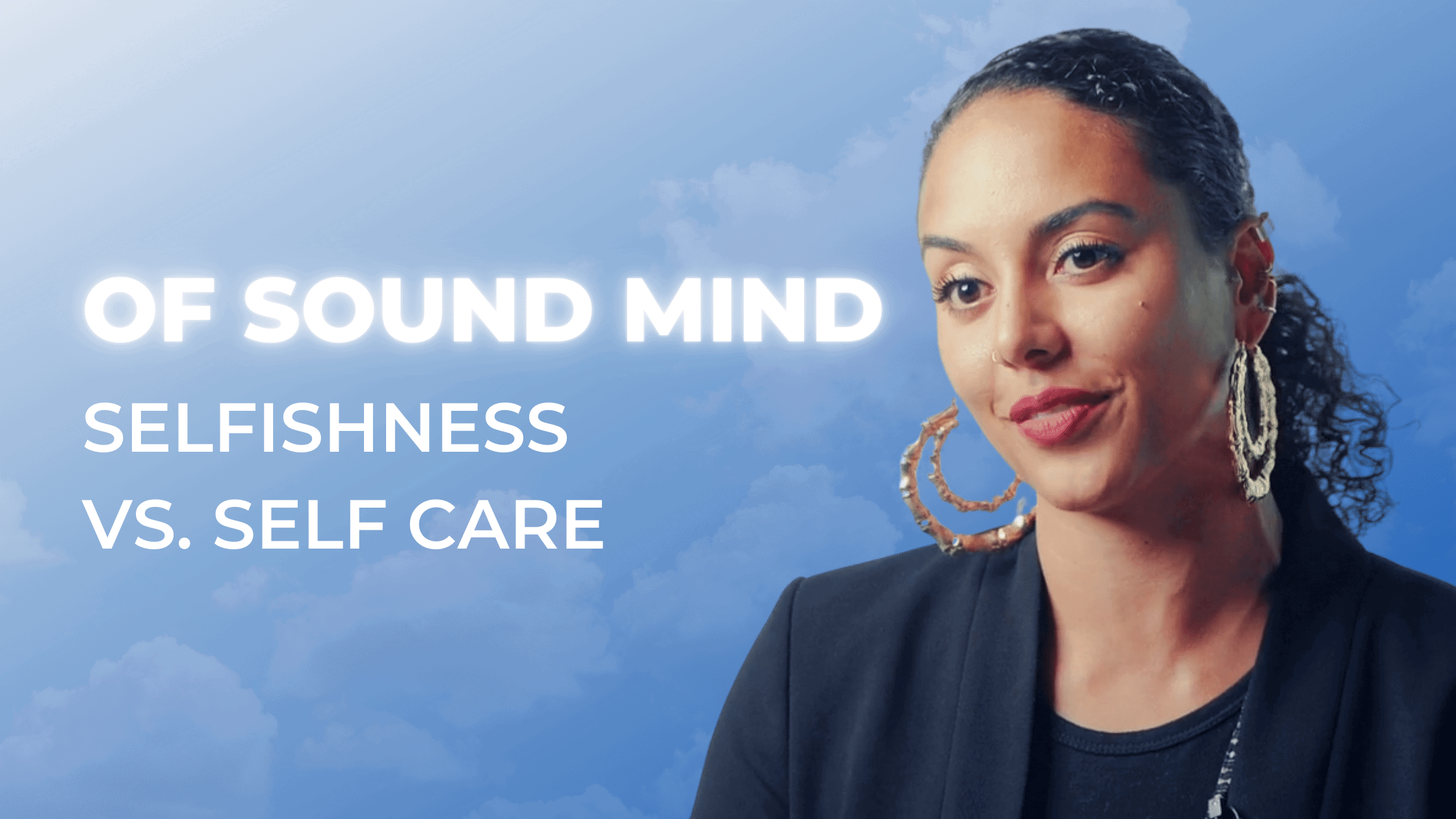Many of us were taught focusing on ourselves is 'selfish,' and focusing on others, even at our own expense, is 'righteous' — But, that’s a little wacky, backwards (and) flipped.
Ashley larae
When Does self-care become selfish?
Researchers are using some of nature’s most popular cannibals to better understand selfish tendencies.
This study defines “selfishness” with a spectrum that ranges from “altruism” to “cannibalism.”
Considering this perspective, how selfish is selfcare really?
Is a yoga class, happy hour, or 20 minutes of meditation and relaxation that selfish?
Peace of Mind
According to the World Health Organization. “There has been a 13% rise in mental health conditions and substance use disorders in the last decade.” “Of Sound Mind” is a series dedicated to relieving stress and providing a fresh perspective on emotions and mental health.
In this episode lifestyle expert Ashley LaRae explores how taking time for self-care can lead to questioning where the grey area for “selfishness” begins. At the end of the episode, LaRae guides a stress reducing, healing sound bath.
Use the three takeaways below as a “selfishness meter” reference point.

" If your cup is empty, you have nothing to pour into another. . . If you allow and create overflow from within, then you have an overflow coming from within."
Ashley larae Tweet
Energy is real and finite. Each bodily function, from micro to macroscopic, produces physiological vibrations. Researchers are exploring the effects that individual physiological vibrations have on the larger electromagnetic fields that web the energy flow of all living (and even many unliving) things together. Energy medicine is a relatively new science.
There’s a growing body of research concerned with if and how the energy produced by neurological activity affects human behavior and health. Theoretically, someone with low energy physiologically has nothing to bring to the table. Science might eventually be able to prove that uncared for low energy reserves bring down higher vibrational levels around it.

"Recognize that guilt is an illusion and it’s actually unhelpful and creates self-sabotage."
Ashley larae Tweet
Sabotage is any behavior that destroys or undermines something. Neglect is a form of sabotage.
The idea of having a subconscious saboteur lurking around, infecting the mind with subliminal messaging is terrifying. But, what’s more frightening is the idea that the saboteur has a companion working in plain sight: gilt.
Sabotage and guilt are joined in a destructive cycle of reinforcing negative beliefs. Sabotage damages relationships and destroys dreams. These feelings cause guilt. Guilt fuels the saboteur and the cycle continues.

"The more you heal, the more you’ll no longer resonate with others who don’t want to heal. You have to do what’s best for you and feeling bad about that shows an innate lack of self-love somewhere within our core.."
Ashley larae Tweet
The emotions and memories that cause pain tend to define a person until they are able to heal and let go. It’s counterintuitive to think that the relationships and circumstances of a person’s life will remain the same after they’ve been freed from core characteristics that encompass their identity.
Change isn’t always pretty, it’s definitely not easy. People, places and situations do change. That’s arguably the only certain thing. But, it’s usually for the better. Many studies have found that people “adults become more agreeable, conscientious and emotionally resilient as they age.” However, true change takes years and even decades to completely manifest. Feeling guilty for taking action to optimize inevitable change is usually a symptom of something deeper.



